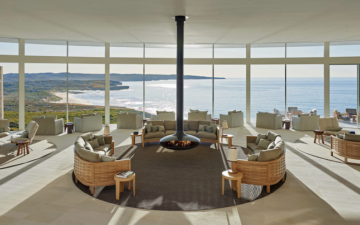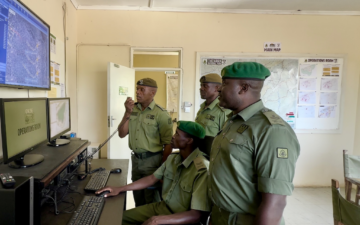
A hundred years ago on the island of Lefkada, Greece, Andreas’ grandfather planted sixty Asproelia Lefkadas olive trees.
For thirty years after his death the plantation was abandoned. Today, Andreas Dimitrakopoulos has taken the farm back in hand and is producing some of the finest olive oil in the world …winning a Silver medal in the New York World Olive Oil Competition; and another Silver in the London 2025 International Olive Oil Competition.
Lefkada Mico Farm believe they have become the first to grow, harvest and extract their premium oil solely by using sustainable energy.
Andreas – who says his previous farming experience was limited to once growing a pot of mint for his mojitos – made a decision to revive the grove and turn it into a business when his previous job in corporate management failed to nourish his soul. What followed was a whirlwind of learning, and working with a respect for nature which resulted in international acclaim within four seasons.
What sets Lefkada Micro Farm apart is its commitment to chemical-free farming and renewable energy. Producing less than a thousand litres of olive oil each year, the farm focuses on quality: high-phenolic, antioxidant-rich olive oil from an indigenous variety, tested annually for more than 200 chemical residues—and consistently coming up clean.
To maintain purity, the farm operates completely off-grid.
Every activity on the farm is powered by solar energy: lighting, refrigeration, washing machines, ventilators, and the air-conditioning that protects the heat-sensitive olive oil in the shop— sometimes running for 20–24 hours a day. Even the handheld olive-harvesting machines are solar-powered. This year’s harvest was 100% solar-powered from tree to bottle, making it one of the most environmentally friendly olive oils produced anywhere in the world.
Modern harvesting tools, powered by petrol or diesel, emit fumes which risk contaminating the olives. Solar-powered equipment eliminates that possibility entirely, preserving both flavour and purity. 
The power system consists of :
- 3 x 550 W bifacial solar panels
- Solar energy is controlled by a SmartSolar 150/70 MPPT solar charge controller.
- Energy is stored in a Lithium NG 25.6/200 batteries
- Battery charge/discharge cycles are controlled by a VE.Bus BMS NG battery management system. Bluetooth provides status information, and allows updates and programming direct from a phone using VictronConnect. The VE.Bus BMS controls Victron’s Next Generation Lithium batteries for systems using VE.Bus communication.
- AC power is provided by MultiPlus-II 24/3000 inverter/charger
The installation was carried out by Andreas’ long-time friend, certified electrician Giorgos Mavroulis, president of the electrical contractors’ association of the island.
The farm previously operated on a smaller Victron setup which was sufficient for lighting and charging devices—but the new system has transformed their capabilities. The earlier system serves as a backup during peak summer loads.
The farm keeps a petrol generator on hand for rare cloudy periods, and machinery such as the welding machine can be run using the Power Assist function of the Inverter – whereby battery power can be added to the generator output to supply peak loads.
Today, hundreds of visitors from around the world come for a tour of the sustainable farm; attend one of the cooking or baking classes, or to enjoy a private dining function using naturally grown ingredients. The farm shop sells bottles of freshly milled, high-phenolic olive oil. Lefada Farm also have an online shop selling their produce to Europe and the world.
For Andreas, sustainability is a way to honour his grandfather’s grove and ensure it thrives for another hundred years. “We think it’s a great example of how renewables can be part of a small business like ours,” he says. Lefkada Micro Farm shows that innovative small farms can lead the way to better produce by blending traditional and modern methods.
Let’s take a look around the farm:




